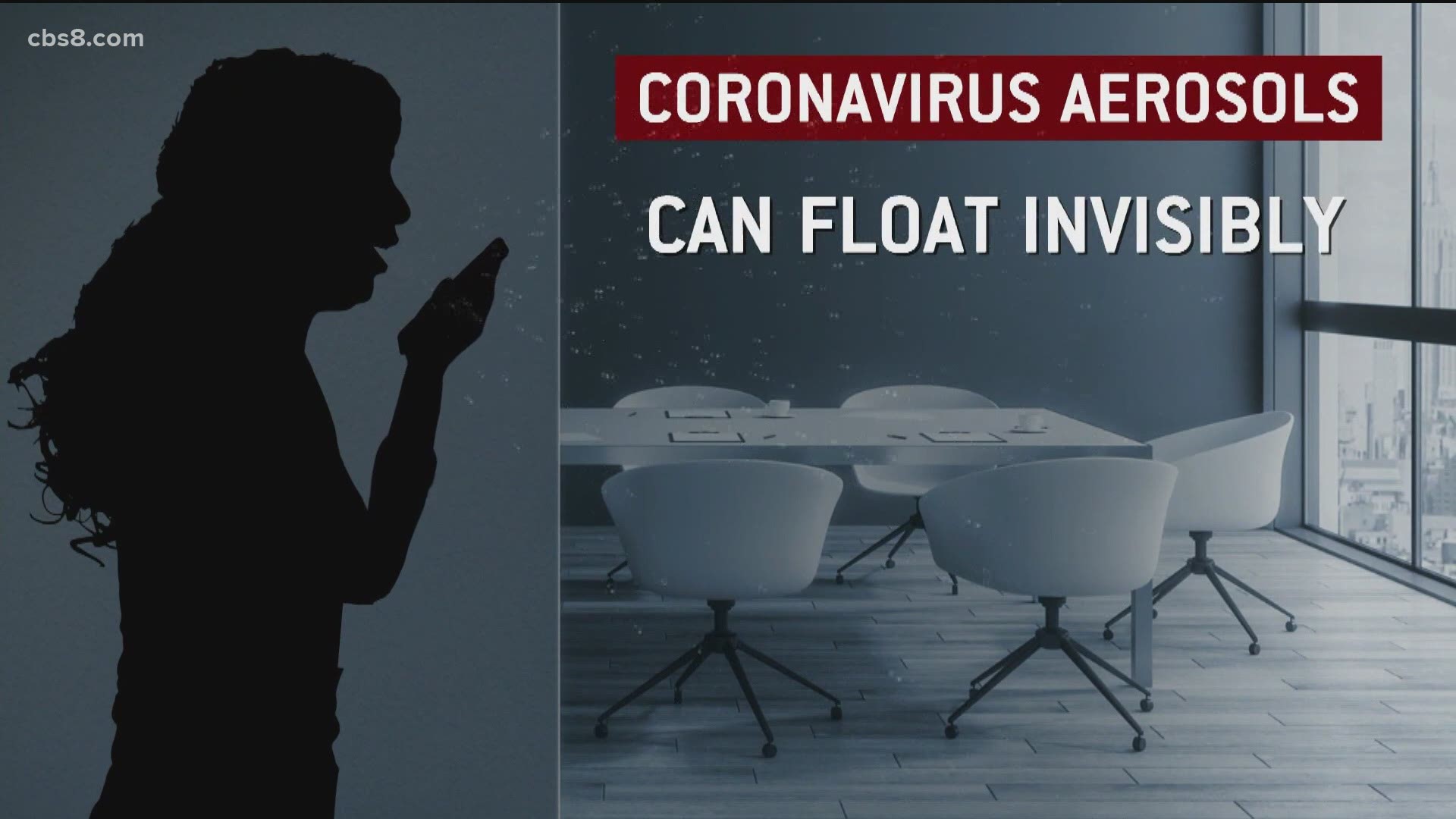SAN DIEGO — COVID-19 still spreads through the air. And, that could set back you and your workplace.
Dr. David Michaels, a professor at George Washington University, says not having the CDC recognize the importance of aerosol transmission is an OSHA concern, too.
RELATED: The call to double-mask amid a spike in coronavirus variant cases
He and a dozen scientists are calling on the White House, CDC and Dr. Anthony Fauci to update COVID-19 policies by acknowledging the virus can be widely transmitted in the air.
"Currently, so many CDC guidelines are out of date, they are left over from the Trump administration,” Dr. Michaels said.
The medical experts signed a letter sent to the Biden administration on Monday and gathered on a Zoom call to offer employee solutions saying the workplace is the primary place for COVID-19 exposure.
The group even said plastic dividers aren't enough to mitigate the spread. The scientists want OSHA to improve its emergency standards and for the federal government to ramp up production of personal protective equipment (PPE) and respirators by using the Defense Production Act.
“The purpose of this letter was not to discuss masks, and it was not to discuss what is a better mask, it really was to call the attention that workers are not being offered the kind of protection they need,” said Dr. Lisa M. Brosseau, Research Consultant, Center for Infectious Disease Research and Policy.
UC San Diego's Dr. Kimberly Prather did an ocean simulation inside a laboratory by putting sea water inside a tank and breaking waves to see what comes out of the ocean.
"In other words, we look to see if it gets into the air, everyone in San Diego can breathe it,” said Dr. Prather, UC San Diego Distinguished Chair in Atmospheric Chemistry.
She suggests to update your ventilation at home, crack open a window or door as the virus can float indoors. Large droplets can travel six feet, but smaller ones, particles called aerosols, can float invisibly through an room when someone talks, and those particles can be infectious for hours.
"They float like cigarette smoke, and they accumulate indoors, so if you happen to be inside with someone who is sick, and they don't know it, they are generating 1,000 aerosols a minute,” Prather said.
As for getting kids safely back in school, Dr. Prather says a simple little CO2 sensor could help, which tells you whether your air is fresh or not.
"Inside, we all share the same air, and that's how this virus is spreading. Kids have been breathing dirty air in their classrooms forever, and they have been getting sick forever, so if we clean the air now, it’s going to be a huge bonus in the long run,” Prather said.

